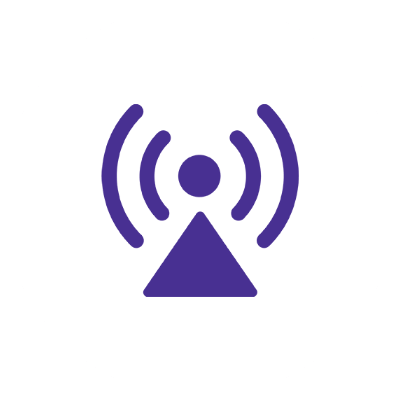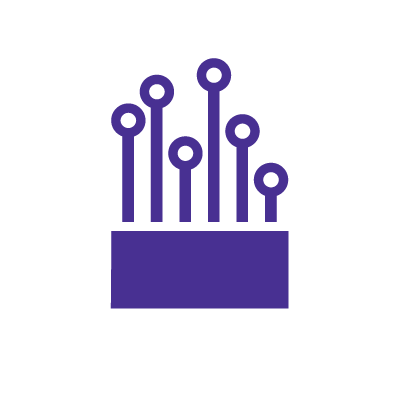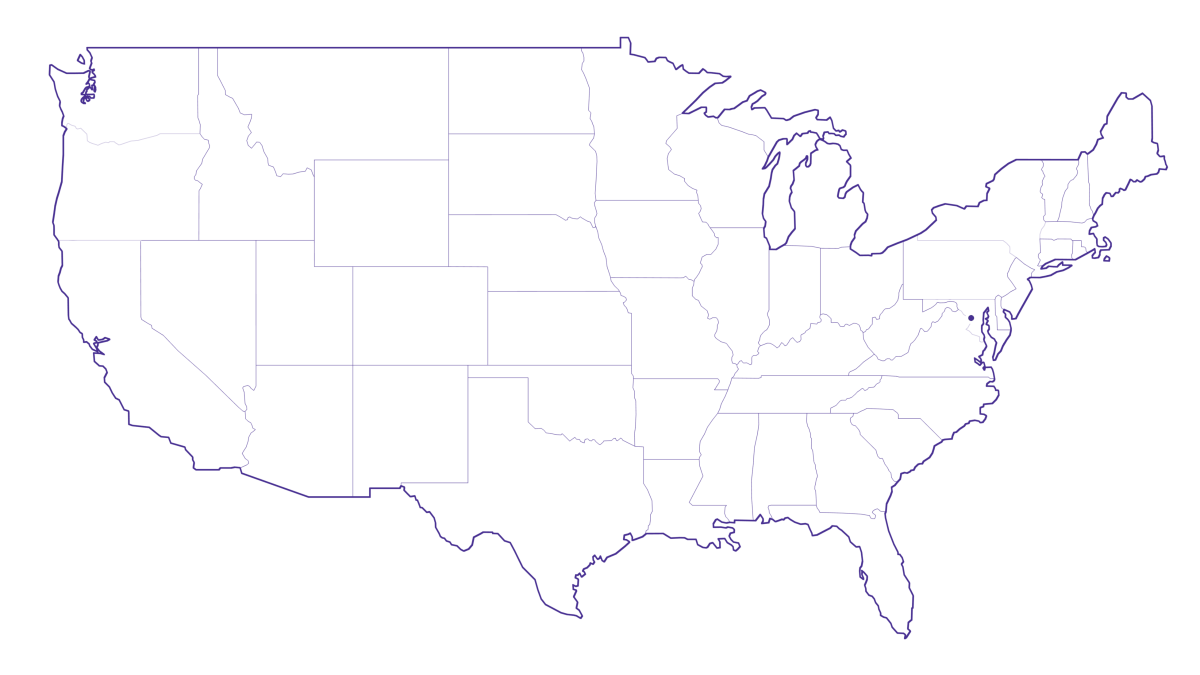Is 5G home internet good for gaming?

While 5G home internet typically can deliver speeds of 40 Mbps to 300 Mbps, which may support some gaming requirements, it comes at a trade-off.
A good gaming experience is contingent on low latency and consistent speeds. However, 5G home internet offers latency fluctuations, inconsistent speeds at peak times and low data caps, negatively impacting online gaming performance.
This article will explore the reality of gaming on 5G home internet and its limitations. We will also compare it to fiber and cable internet to determine whether it is ideal for gaming.
The FWA technology gap
You deserve better internet
Fixed Wireless Access (FWA) uses radio waves which are impacted by obstacles like buildings and trees, resulting in reduced reliability.

The reality of gaming on 5G internet
5G home internet promises to improve the gaming experience with higher download speeds and lower latency. However, during peak usage times, 5G home internet and mobile users compete for cell tower capacity, negatively impacting your overall experience.
Before choosing 5G home internet for your gaming needs, let’s look at some of its limitations and how they impact your gaming experience.
Inconsistent connection during peak times
There is usually a surge in internet usage during peak hours, especially in the evenings when people are home from work or school. At this time, many users simultaneously stream and play online games or engage in other high-bandwidth activities that strain 5G networks.
Gaming during peak hours could lead to negative experiences, especially when streaming your gameplay on Twitch or watching HD streams on YouTube. Network congestion strains the available bandwidth, which can reduce upload speeds and increase latency, which resulting in low-quality streams and lags in gameplay.
Too much latency fluctuation
Latency is the time it takes for a packet of information to travel over a network, and it’s critical in online gaming. While 5G offers lower latency than the older 4G and 3G technologies, fluctuations and spikes occur frequently. The factors causing these spikes include:
- Network congestion caused by a surge in users.
- Increased physical distance between devices and 5G cell towers.
- Signal interference from physical barriers.
- Adverse weather conditions.
Learn more: 5G vs. 4G: What’s the difference?
Latency fluctuation disrupts real-time interaction in multiplayer first-person shooter games like Call of Duty or esports competitions.
The latency spikes generate lag, which is detrimental when a player’s actions are quickly reflected in the game. This lag disrupts the seamless flow of the game and leads to a frustrating experience for the players.
Lower priority than cell users
5G network providers prioritize cell phone service users over home internet users during peak usage hours when network demand is high. As active users increase, some Reddit users report that network providers throttle 5G internet to ensure mobile phone users maintain faster and more reliable connections.
The deprioritization of home internet services leads to slower and inconsistent speeds that impact gaming and streaming during busy times. T-Mobile warns users that “during congestion, Home Internet customers may notice speeds lower than other customers due to data prioritization”.
Learn more: Astound vs T-Mobile home internet
Slower internet speeds result in slower game downloads and delays that cause lag in fast-paced, competitive games.
5G home internet deprioritization is part of network management to ensure an even allocation of network resources. However, it can come at a price for gamers relying on a stable internet connection.
Fiber-powered internet
Why Fiber Internet works better
Astound’s fiber-powered internet provides consistent speeds throughout the day versus 5G Home Internet which is prone to intermittency.

Data caps on 5G plans
Aside from a stable connection and low latency, online gaming also requires large amounts of data to handle game downloads and frequent updates. For example, Call of Duty requires 172 to 240 GB of data for download. The data caps that some 5G plans may be depleted by massive game downloads, updates and HD or 4K game content streaming.
Ask the Expert video tutorial: Does 5G home internet have data caps?
Learn more: How to reduce your mobile data usage
Once users exceed the data limits, some 5G home internet providers throttle speeds, as these Reddit users experienced. Throttled speeds provide a frustrating gaming experience as they slow down game downloads and increase latency issues, which disrupt gameplay.
Furthermore, exceeding data caps results in additional data charges, increasing internet costs for avid gamers who need to download large games or updates frequently.
On the other hand, fiber and cable internet plans generally offer higher data allowances than 5G plans, including unlimited options. Gamers can easily download large game files and updates quickly without worrying about exceeding data limits.
NAT issues prevent open connections for multiplayer games
Network Address Translation (NAT) is the method by which multiple devices on a local network share a single public IP address.
Most 5G providers use Carrier Grade NAT (CGNAT), which restricts the NAT type for their users and limits the ability to connect to other players with different NAT types. NAT issues can cause connectivity difficulties, resulting in disconnections and making various games unplayable.
Some users experience double NAT when using 5G home internet with their own routers. Double NAT prevents devices connected to the 5G home internet from communicating with those connected to the other router.
When you have double NAT on your home network, P2P connections utilized by games may not work correctly. Furthermore, features such as voice chat may not function properly with double NAT.
Limited coverage
The continued deployment of 5G networks results in uneven coverage across regions, unfavorably affecting gamers in areas lacking 5G services.
Gamers in regions that lack 5G coverage have to depend on 4G and 3G networks, which fall short on faster speeds and lower latency, leading to a suboptimal gaming experience.
Furthermore, disparities exist in competitive online multiplayer gaming, with players in areas with 5G coverage having an unfair advantage over those with limited coverage.
They experience high-speed and real-time gaming interactions, while their counterparts face gameplay lag and slower download speeds. Limited 5G coverage impacts fair competition and equality in gaming experiences.
Until 5G networks are extensively deployed, gamers in places with limited coverage may experience slower speeds and higher latency than those in well-covered areas.
Gaming internet
Get the total gaming solution
How you game is up to you. One thing is clear–you need fast and ultra-reliable internet. Get fiber‑powered internet that delivers Gig speeds no matter what high-bandwidth activity you choose.

Will a gaming router improve my latency and reliability on 5G?
A gaming router is designed for low latency and high-speed performance to improve the gaming experience by reducing lag and ensuring smooth gameplay. It provides the following advantages over regular routers:
- Prioritizes gaming traffic through Quality of Service (QoS) features.
- Lowers latency and reduces lag by prioritizing gaming data packets.
- Offers customizable settings to fine-tune the network for specific game needs.
- Offers enhanced security features such as built-in VPN support and a traffic controller.
- Provides a graphical user interface for non-technical users to edit the QoS settings.
Learn more: Gaming router vs normal router: Which is better?
Latency in 5G involves multiple “hops,” as the signal must travel from your device to the router, finally to the tower and back. If the 5G home internet service is inconsistent or has issues, a gaming router may not be able to compensate for these limitations fully.
In addition, using a gaming router with a 5G home internet connection may result in both routers handling NAT simultaneously, which leads to double NAT issues. Furthermore, gaming routers offer features like port forwarding and Universal Plug and Play (UPnP), which can lead to more connection conflicts if these features are enabled on both routers.
5G vs. fiber and cable internet for gaming
Choosing the proper internet connection for your gaming needs is crucial, as each connection type affects your overall gameplay experience. Consider the following factors when comparing 5G to fiber and cable internet for your gaming needs:
Consistency of speeds
Fiber and cable internet stand out because a wired connection can provide a more consistent connection with Gigabit speeds, for more seamless gaming sessions.
A wired connection is less vulnerable to signal interference or weather conditions, resulting in more consistent speeds and reliable connections.
Ask the Expert video tutorial: How reliable is a 5G home connection?
On the other hand, 5G’s wireless internet signals are transmitted through 5G cell towers, which may encounter slowdowns during peak times due to network congestion.
Furthermore, Fixed Wireless Access (FWA) providers may deprioritize and throttle 5G internet during peak times to accommodate cell service users. Internet deprioritization slows down 5G internet speeds and results in a subpar gaming experience.
Ability to choose internet speeds
Fiber and cable internet plans typically allow users to select from a range of speed options, allowing for customization based on their specific needs.
If you are a casual gamer, you can choose internet plans with speeds as low as 300 Mbps or as high as 1.5 Gigabit speeds for professional gamers.
On the other hand, 5G internet speeds typically range from 40 Mbps to 300 Mbps. These speeds fluctuate and can vary due to network congestion and the distance of the cell tower from your home.
Capacity to connect to more devices
Your internet connection should be able to connect to multiple devices without compromising performance. Fiber and cable internet connections are known for their higher bandwidth, which supports multiple devices simultaneously.
You can host multiplayer gaming sessions with various consoles and connect to other personal and household devices.
While 5G also supports multiple device connections, a surge in device connections can lead to bandwidth strain.
Furthermore, 5G internet providers may impose device limits on their networks, which, when exceeded, can result in slower speeds and high latency due to network congestion.
Improved reliability
Fiber and cable internet are more reliable than 5G home internet for gaming requirements. Because of its wired technology, it has a more consistent connection, reducing lag and jittering while playing.
5G’s latency fluctuates, which can make it less reliable and more unpredictable for gamers due to potential disruptions while playing.
When choosing between 5G and fiber for gaming, it is essential to consider the speeds, reliability and latency.
Fiber and cable are the preferred choice for gaming because of their faster speeds, lower latency, and consistent performance. A wired connection provides advantages such as lower ping and jitter rates and unlimited data, resulting in a better online gaming experience than 5G networks.
Build your plan
Your perfect plan is just a click away
Get the speeds, WiFi, mobile and TV plans you need all at an affordable price. Bundle your services with Astound and see how much you can save.

Bottomline: Is 5G internet good for gaming?
If you want an excellent online gaming experience, 5G home internet may not be ideal for your gaming needs. 5G’s latency fluctuations, inconsistent speeds, low data caps and limited coverage can negatively affect your gaming experience.
Given the nature of competitive multiplayer online gaming, where milliseconds define the difference between winning and losing, a stable, fast, and low-latency Internet connection is vital.
A high speed internet service provider, like Astound, provides a fiber-powered internet connection with faster, more stable Gigabit speeds and lower latency for a smooth gaming experience.
Furthermore, you can save on costs by bundling internet services with cell phone plans to give you flexible and convenient plans at an affordable price
*Internet speeds may vary & are not guaranteed. Certain equipment may be required to reach advertised speeds. DOCSIS 3.1 modem with 2.5GE physical LAN port is required for 1 Gigabit speeds and higher. See astound.com/yourspeed for why speeds may vary. To view Astound’s FCC Network Management Disclosure see astound.com/policies-disclaimers. Limited time offer, subject to change without notice. Advertised promotional price valid for duration of the stated promotional period from time of service activation. Regular rates apply after promotional period ends. Equipment not included and is extra. Modem required for Internet service. Enhanced Wi-Fi or Whole Home Wi-Fi (eero) not included and is add’l. Offer includes a monthly discount for enrollment in both automatic payments (autopay) & paperless billing (e-bill). Discount of $10 applies with automated bank account deduction or a discount of $5 applies with automated credit/debit card payment. Valid email address required. Must complete enrollment in autopay and e-bill within 30-days of placing the order. Without enrollment, the discount does not apply. Discount appears on bill within 3 bill cycles after enrolling. If either autopay or e-bill is canceled, services are changed, or the account is not in good standing, then the monthly discount will be discontinued. Offer valid only for new residential Astound customers or previous customers with an account in good standing who have not had Astound service within the last 60 days. Any add’l services, equipment, premium channels & other tiers of service are subject to an add’l charge & regular increases. A one-time activation fee of $14.99 (in addition to any installation fees) will be charged & is subject to change. Add’l fees apply for taxes & surcharges, and are subject to change. WA RESIDENTS: unless otherwise specified, price does not include a 2% Regulatory Administration Fee. For details about taxes, fees & surcharges visit astound.com/fees. No early termination fees apply in the event service is terminated in advance of the promotional end date. Customer is responsible for any accrued service charges in the event service is canceled. Subject to credit check. Not all services & speeds are available in all areas. A multi-product discount may be available to qualifying addresses with a subscription to mobile, TV, and 600 Mbps Internet or higher. Discounts will be reflected in your order cart at time of purchase, if available. Other restrictions may apply. All services are governed by the Astound Customer Terms & Conditions that can be found at astound.com/policies-disclaimers. © 2025 Radiate HoldCo, LLC d/b/a Astound Broadband. All rights reserved.
While we have made every attempt to ensure that the information contained in this site has been obtained from reliable sources, Astound is not responsible for any errors or omissions, or for the results obtained from the use of this information. All information in this site is provided “as is”, with no guarantee of completeness, accuracy, timeliness and without warranty of any kind, express or implied, including, but not limited to warranties of performance, merchantability and fitness for a particular purpose. Certain links in this site connect to other websites maintained by third parties over whom Astound has no control. Astound makes no representations as to the accuracy or any other aspect of information contained in other websites.
eero Plus is available for an additional $9.99/month and requires subscription to whole home WiFi powered by eero.

















